|
Shrubs can provide a low-maintenance alternative in a garden that can rival perennials and annuals. Identify shrubs that provide multi-season interest and are appropriate to our northern climate. They can be used in place of ground covers or as small trees in addition to providing a dramatic backdrop for other plants. Learn the basics for selection, pruning, rejuvenation, and maintenance for most shrubs.
Early spring is the time to check out catalogs, place seed orders and start seeds. Learn about several seed starting techniques, how to decipher catalog and seed package jargon, and proper planting conditions in this program.
Speakers and topics covered this year are:
The University of Wisconsin (UW)-Madison Spooner Agricultural Research Station, UW-Madison Extension and Master Gardener Volunteers will be holding their Annual Twilight Garden Tour on Thursday, August 24 from 4-7 p.m.
To be held at the Station’s Teaching and Display Garden, located at 780 Orchard Lane off Highway 70 just east of Spooner, this is one of the region’s premier summer gardening events and it includes displays, speakers, demonstrations, and guided tours of the garden plots. Vegetable and home-made wine tastings will be available. The staff from UW-Madison Spooner Ag Research Station, Extension Educators, Master Gardener Volunteers, as well as the event’s speakers will be available to answer gardening questions and identify plant, insect and disease samples. Attendees are welcome to explore the Teaching and Display Garden as well as bring samples of diseased plants or representative photos for identification and advice. Displays will feature The American Hazelnut Company, Spooner Farmers Market, Foodwise, Wellbeing with Danette, as well as others. The expert panel of speakers will kick-off at 4:45 p.m. and then provide walking tours in which they will answer questions. Speakers and topics covered this year are:
The Teaching & Display Garden is an official All-America Selections (AAS) display garden featuring both flowers and vegetables and has been awarded multiple awards in the National Landscape Design contest sponsored by AAS. The garden also includes organic vegetable gardening, a children’s garden, container gardening, displays of table and wine grapes and the Monarch and Pollinator Sanctuary perennial garden featuring native plants. As in the past there is no charge for this educational event. In the case of severe inclement weather, the event will be cancelled and not rescheduled. Please visit www.facebook.com/spoonerag to learn more about event status in case of weather. For more information, please contact Kevin Schoessow at 715-635-3506 or 1-800-528-1914, or learn more at https://spooner.ars.wisc.edu/ or https://www.northcountrymgv.org/twilight-garden-tour.html. UW-Madison Extension provides equal opportunity in employment and programming including Title IX and ADA requirements. Please call our toll-free number 800-528-1914 if you have any special needs or require special accommodation. The first part of the program will be held at the Station Building, 1036 E Maple Street (State Highway 70), with a program “Helpful Insects and Pollinators”. This presentation will focus on native plants along with other annuals and perennials that support pollinators. Also included will be information on native trees that provide important shelter and food for birds and pollinators, along with native shrubs that attract wildlife and provide several seasons of interest. You will learn what, when, and where to cultivate native plants that provide food for butterflies, songbirds, hummingbirds, and beneficial insects.
The second part of the program will move to the Station’s Teaching and Display Garden, located at 780 Orchard Lane off Highway 70 just east of Spooner where a walk through the Teaching and Display Garden will showcase plants for our northern climate that are beneficial for pollinators. The staff from UW-Madison Spooner Ag Research Station and Master Gardener volunteers will be available to answer gardening questions and identify plants and pollinators. Wisconsin Celebrates Pollinator Week, June 19-25, 2023, is dedicated to raising awareness through statewide and local activities and events to support National Pollinator Week. By increasing knowledge and adopting pollinator friendly practices, we can improve pollinator health and habitats. National Pollinator Week is an annual event managed by the Pollinator Partnership to help spread the word about what we can do to protect pollinators. For more information and events go to https://hort.extension.wisc.edu/pollinator-week/ The Teaching & Display Garden is an official All-America Selections (AAS) display garden featuring both flowers and vegetables and has been recognized with multiple awards in the National Landscape Design contest sponsored by AAS. The garden also includes organic vegetable gardening, a children’s garden, and the Monarch and Pollinator Sanctuary perennial garden featuring native plants. There is no charge for this educational event. For more information, please contact Kevin Schoessow at 715-635-3506 or 1-800-528-1914. UW-Madison Extension provides equal opportunity in employment and programming including Title IX and ADA requirements. Please call our toll-free number 800-528-1914 if you have any special needs or require special accommodation. 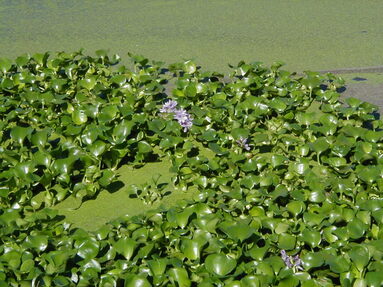 Photo credit: Wisconsin AIS Partnership Water hyacinths, free-floating aquatic invasive plants, pictured here in Wisconsin waters by Melinda Myers
Spread the word and help make a difference by participating in North America National Invasive Species Awareness Week February 20-26. You have the attention of the garden enthusiasts and homeowners that we need to reach with this message, so we can make a difference in our environment now and in the future. Aquatic invasive species (AIS) impact everyone in our state, whether you enjoy boating, swimming, fishing, hunting, or recreating in or near the many lakes, waterways, and wetlands in Wisconsin. Keeping them free of invasive plants is critical for maintaining our enjoyment and the health of our waterways. With your help, we can spread the word and enlist more people to help. Your audiences come to you with a wide range of experiences and an understanding of this garden-related issue. Explaining the What, Why, and How of invasive species can help them identify ways they can get involved and make a difference. The What: Defining the term invasive plants is always a great place to start the discussion. I think the definition on the North America Invasive Species Awareness Week (NISAW) website is clear. They say “The term "invasive" is used for aggressive species that grow and reproduce rapidly, displace native species, and cause major disturbance to the areas in which they are present.” A key difference that I feel is worth explaining is garden bullies are aggressive plants that stay in the landscape while many invasive plants leave the bounds of our gardens and disturb nearby natural spaces and are regulated under Wisconsin’s Invasive Species Rule NR40. The Why: The Wisconsin Aquatic Invasive Species Management Plan shares the following impacts of AIS: “The introduction of AIS into the Great Lakes and inland state waters is a source of biological pollution that has significant negative effects on natural resources, human health, recreational opportunities, and other ecosystem services throughout the state and region. AIS may compete with native species for food and habitat and can, directly and indirectly, harm or displace native species, degrade habitat, and alter food webs and energy flow. AIS can also have significant economic effects on waterfront property values, tourism, utilities, and other industries.” If aquatic and terrestrial invasive species are not managed, they can and will limit land and water use now and into the future. Our well-cared-for gardens, ponds, and shoreline landscapes can play a role in reducing the wide range of impacts AIS have on individuals, communities, and the state. Your involvement can be at whatever level aligns with their gardening endeavors, abilities, and interest. The How: As gardeners and gardening influencers, we can be part of the solution. Encourage others not to purchase and grow plants restricted in Wisconsin in their water features and landscapes. Although regulations for the sale, purchase, and possession of invasive species are in place, some online sellers are not aware, not up-to-date, or not concerned with following existing state and federal regulations. Just because you are able to purchase a plant does not mean it is allowed in Wisconsin. So it is up to us, the individual gardener, to make sure invasive plants do not end up in our gardens, natural spaces, and waterways. Instead buy plants from a reliable and whenever possible, local source. Learn to identify problem plants and look for alternatives. Encourage gardeners to fill their landscapes and water gardens with native plants. This is an appealing first step in growing success and keeping our waterways safe. I have partnered with the UW-Madison Extension Aquatic Invasive Species Program to help do just that. On February 22 at 6:30 p.m. CT in celebration of NISAW, I am hosting a free webinar, Grow Beautiful Water Gardens Free of Invasive Plants. I will provide tips on identifying problem plants and suitable substitutes. Registration is required; sign up by clicking here. Visit the WI DNR webpage Aquatic Invasive Species and Publications and Products for more helpful tips and resources. Help people properly manage water gardens and landscapes for ease of maintenance and the management of invasive plants. Share the importance of removing and properly disposing of invasive plants to prevent their spread. Most municipalities allow you to bag and throw invasive plants in the garbage. Discourage them from sharing invasive and aggressive plants with friends and family. These well-intentioned “gifts” result in more work for the recipient and can harm nearby natural spaces. For videos to share and help spread the word, click here. Report invasive species populations in public spaces and waterways to the Wisconsin Department of Natural Resources (WI DNR) so they can contain and manage the problem. And if you are interested in volunteering to help control these unwanted plants, email [email protected] to be connected with a county AIS coordinator. The more people watching for these problem plants the sooner we can begin containing and managing the problem. “The longer we ignore the problem the harder and more expensive the battle for control will become,” according to NISAW. Tackling the topic of managing invasive plants can be overwhelming and lead to inaction. My partners at the WI DNR AIS remind us “Maintaining and restoring our waters and landscapes can reduce the impacts even when we don’t have other management options for an invasive species. Reporting invasive species is a first step in containing their spread.” Together we can make a difference! REGISTER FOR THE FREE WEBINAR Feb. 22, 6:30 PM: Grow Beautiful Water Gardens Free of Invasive Plants – Register here.
Fall into Winter Gardening
Tips for Getting Landscape Plants Ready for Winter, Thursday, October 13, 12:00 p.m. Even though the days are getting shorter and winter is around the corner, your gardening tasks are not done yet! Join us to learn about how to protect susceptible plants from snow and cold damage. We will also talk about proper mulching and watering to help your plants through the fall and survive the winter. Presented by: Lisa Johnson, Horticulture Outreach Specialist, UW-Madison Division of Extension, Dane County. Protecting Young Trees from Animal and Other Damage Over Winter, Thursday, October 20, 12:00 p.m. In winter, young trees are prone to a variety of hazards. Be prepared to mitigate that damage by learning how to protect young trees from potential wildlife damage and how to effectively protect trunks from winter sunscald damage. Presented by: Diana Alfuth, Horticulture Outreach Specialist, UW-Madison Division of Extension Pierce and St. Croix Counties. Maintaining Your Festive Houseplants, Thursday, October 27, 12:00 p.m. Description: Festive houseplants are a common gift that you may give or receive. Learn how to keep a poinsettia, Christmas cactus, Norfolk Island Pine and other favorite gift plants thriving. We'll cover requirements including light, watering, fertilizer, and humidity. Presented by: Janell Wehr, Horticulture Outreach Specialist, UW-Madison Division of Extension Wood and Marathon Counties. Find out more and consider registering today! If you missed the Tuesday night event,
check out the photos on our home page gallery and the event handouts, information, and recipes.
|
|
| North Country MGV | gARDEN bLOGS |
Location |
|
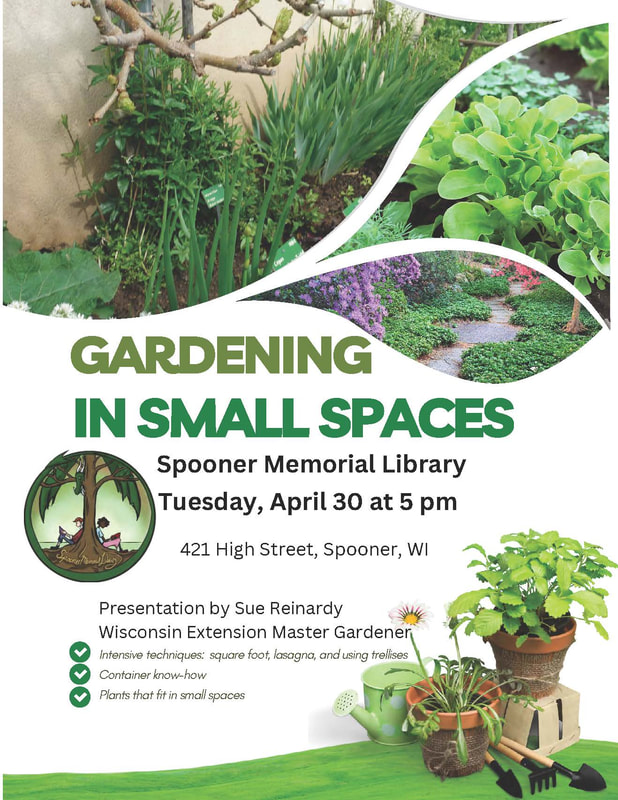
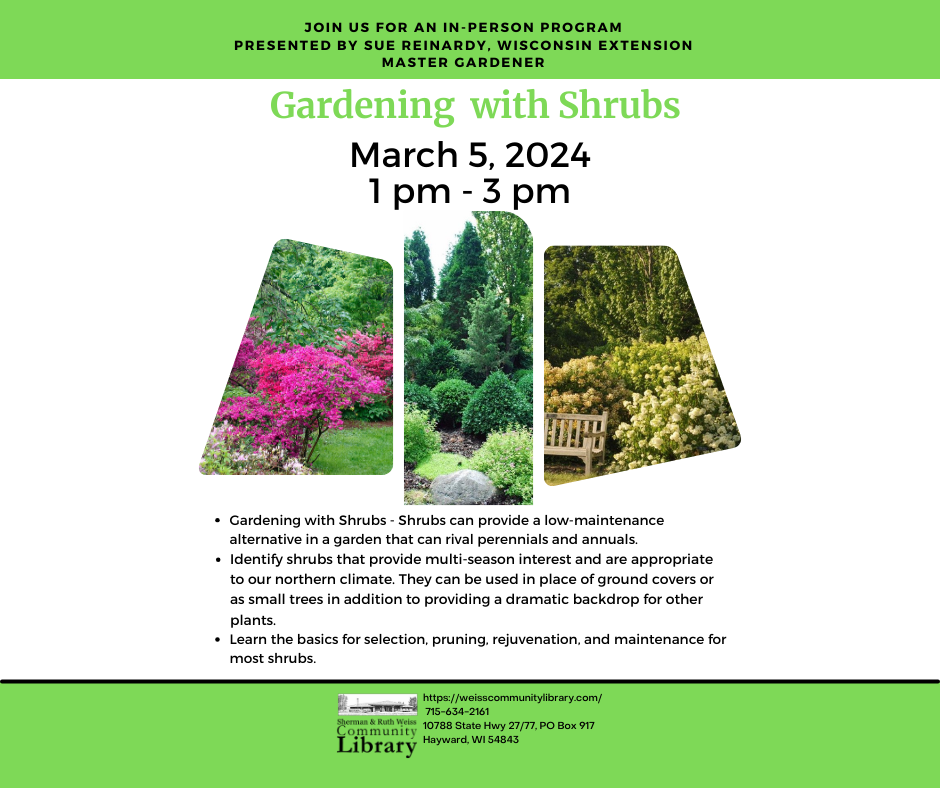
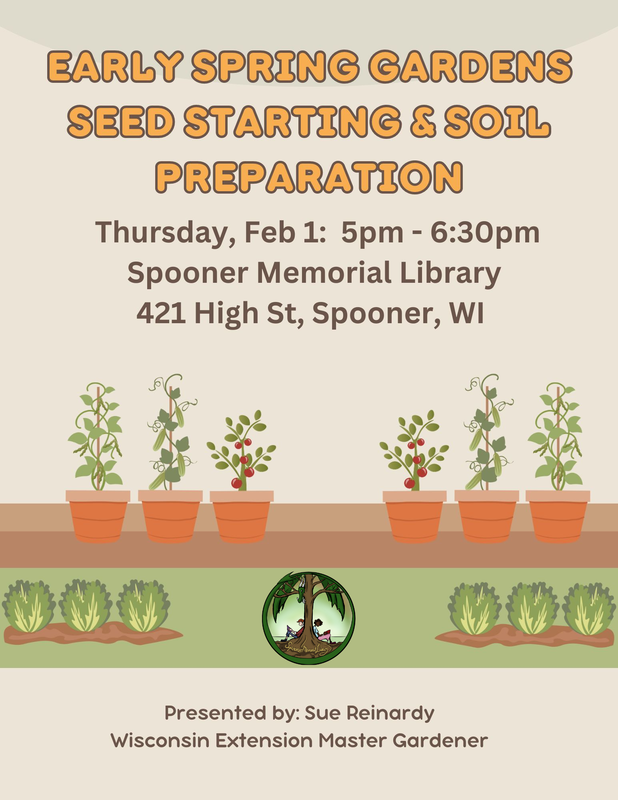
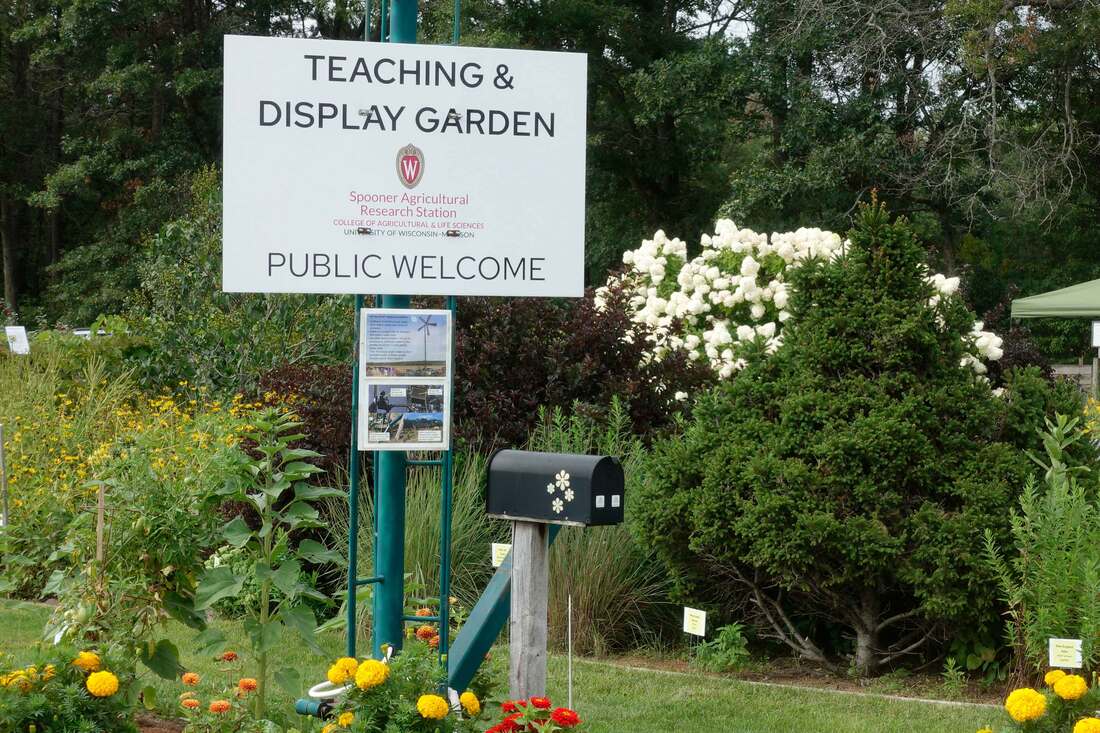
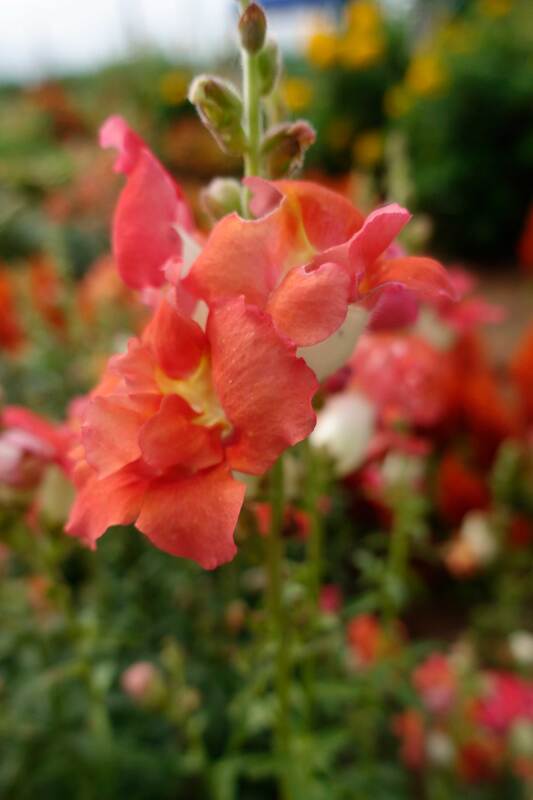
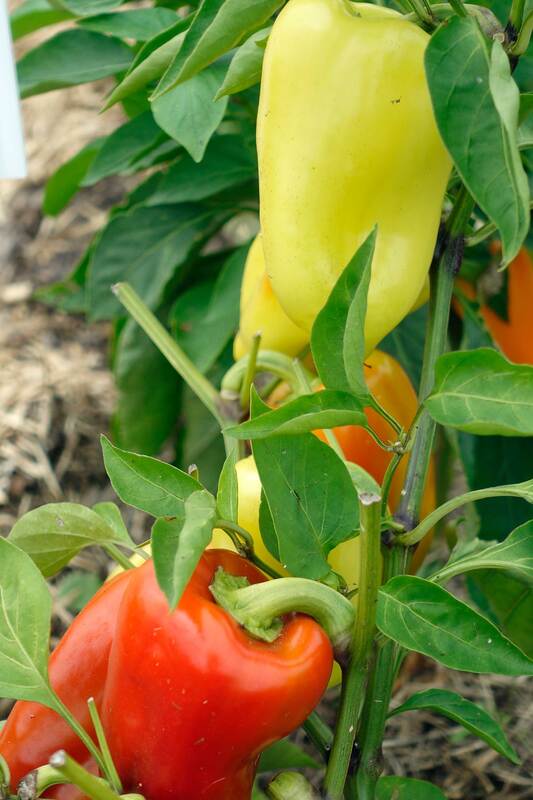
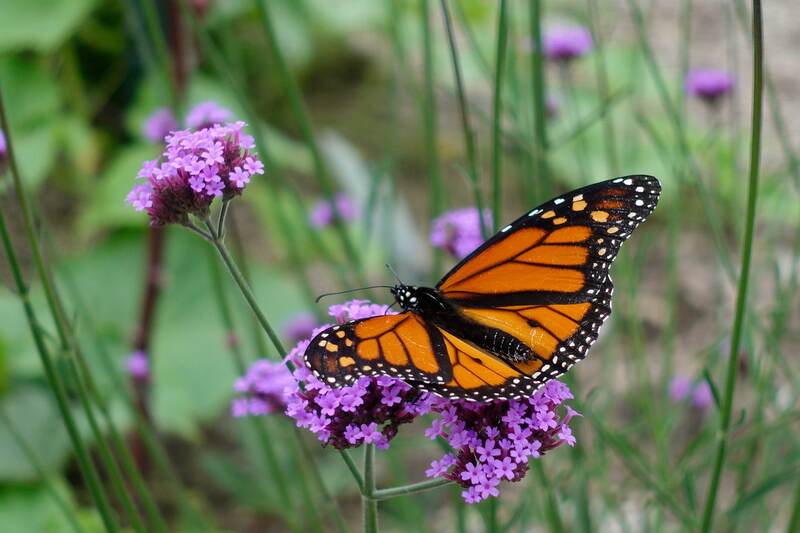
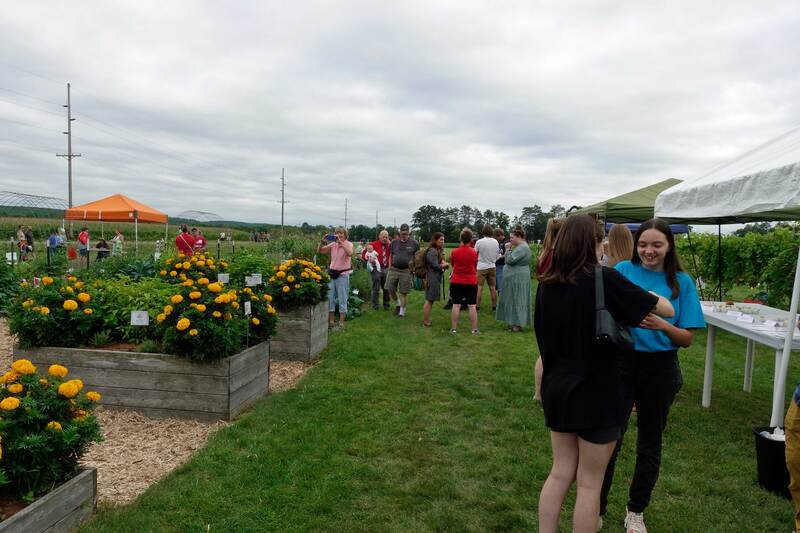

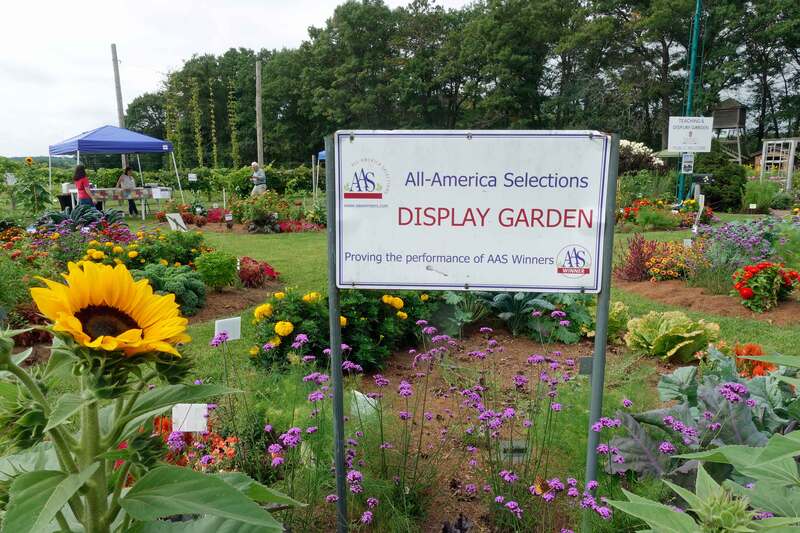
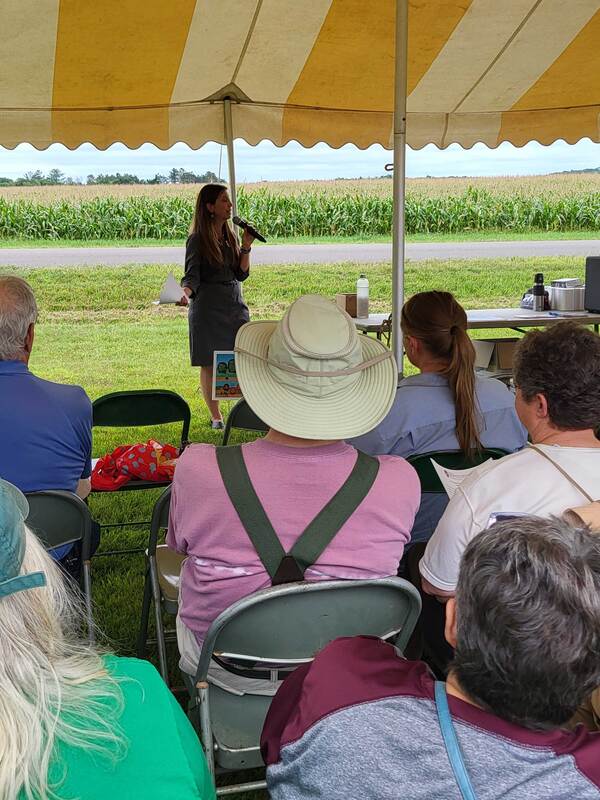
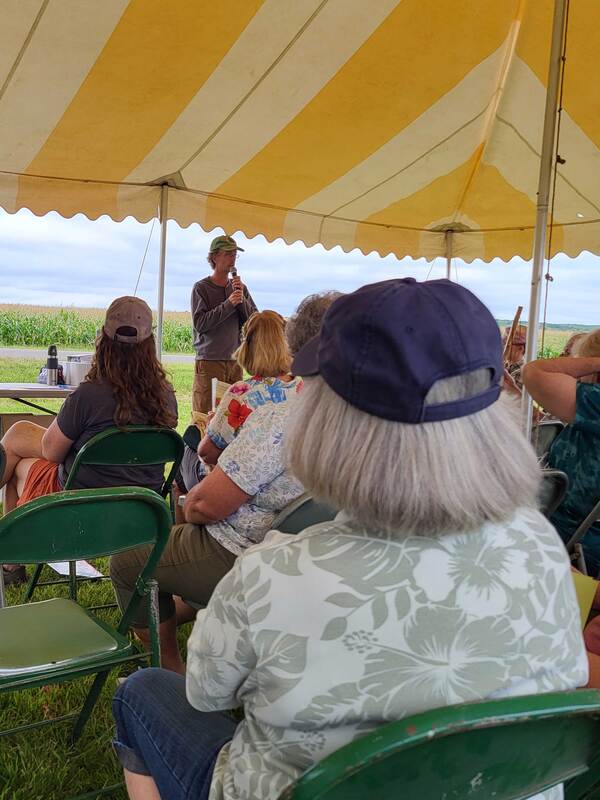
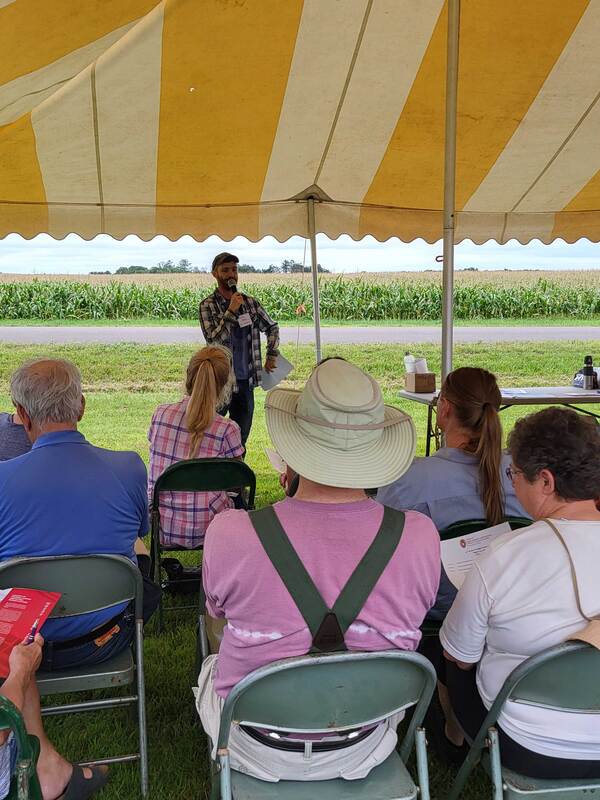
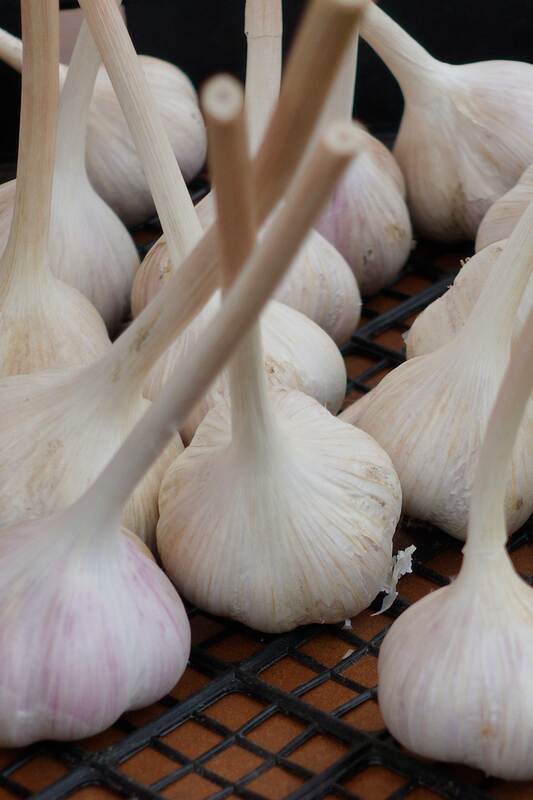
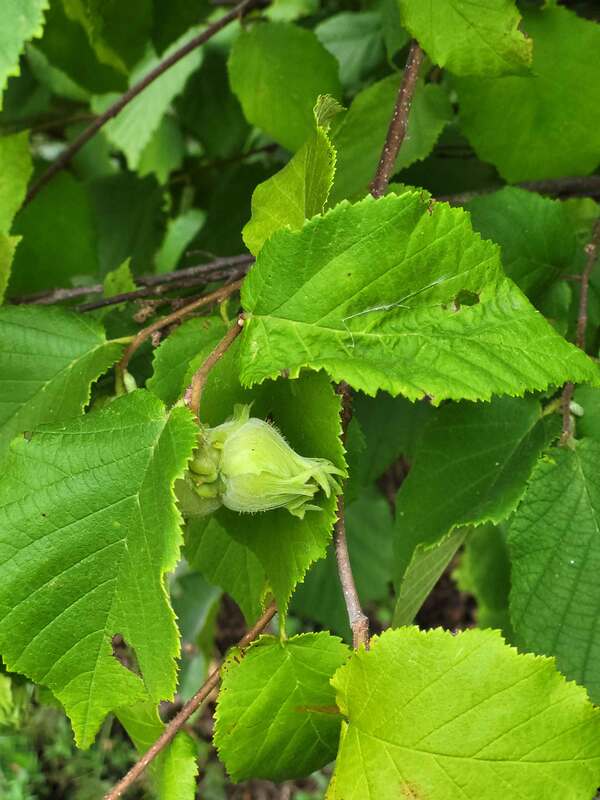
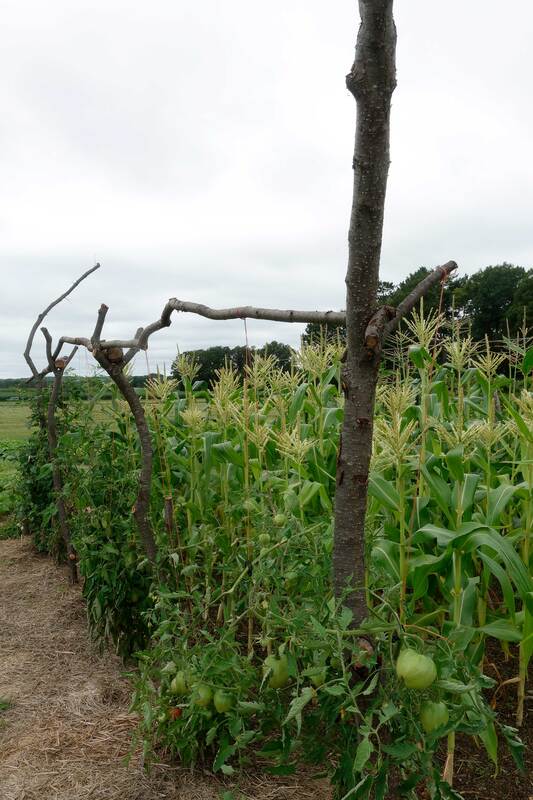
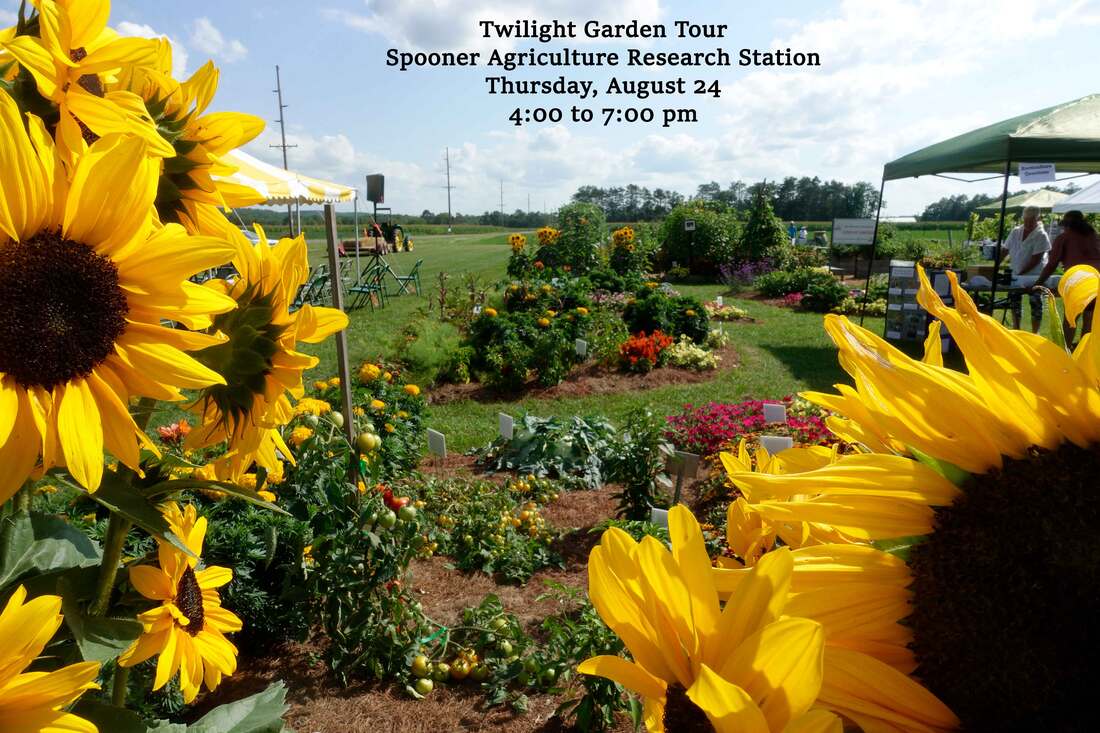
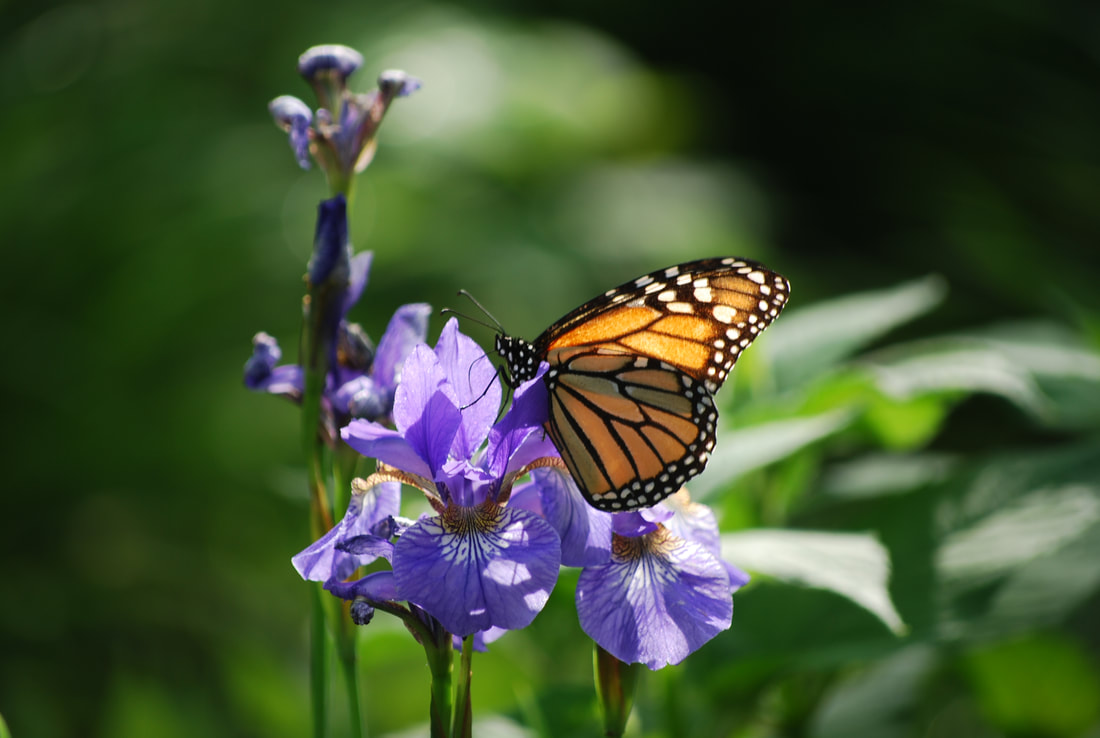
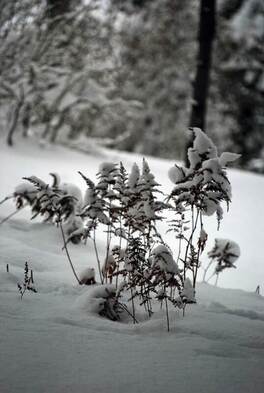
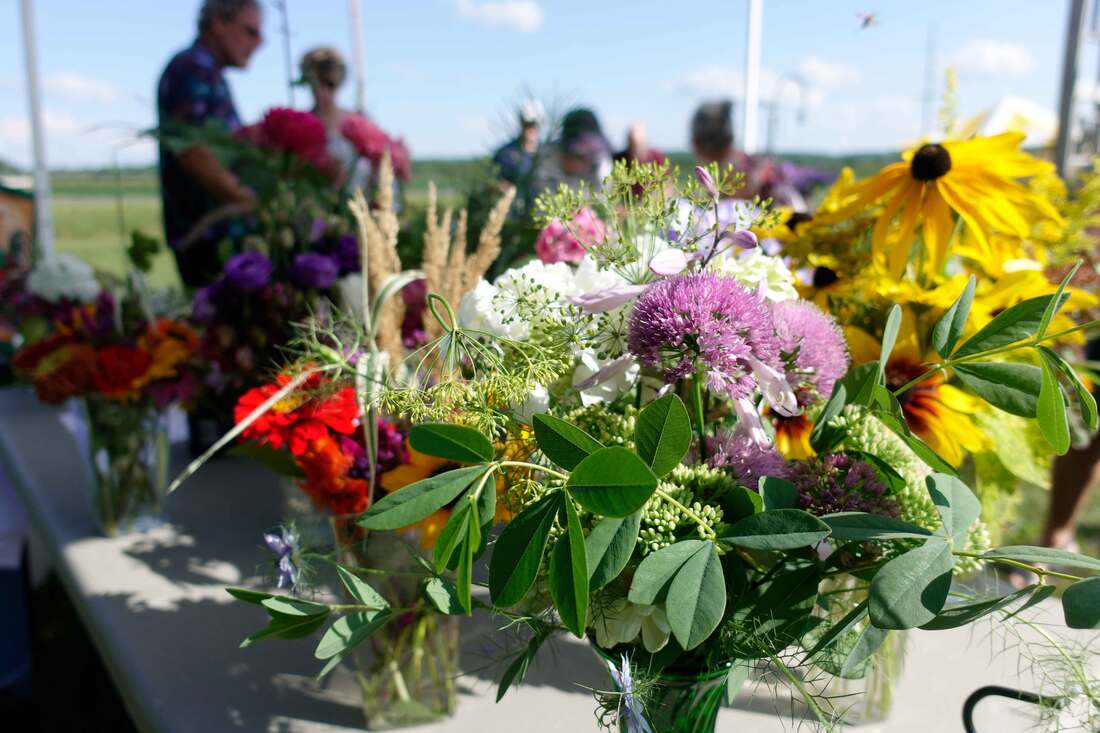
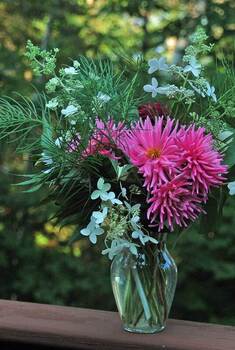
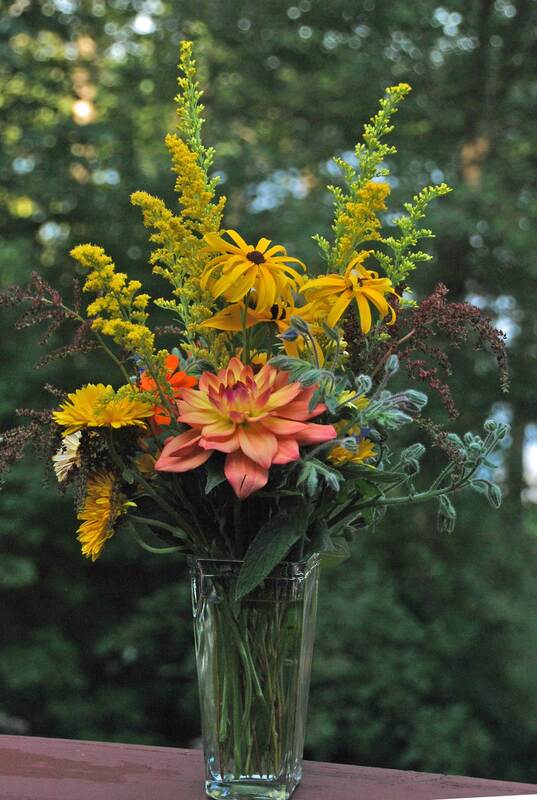
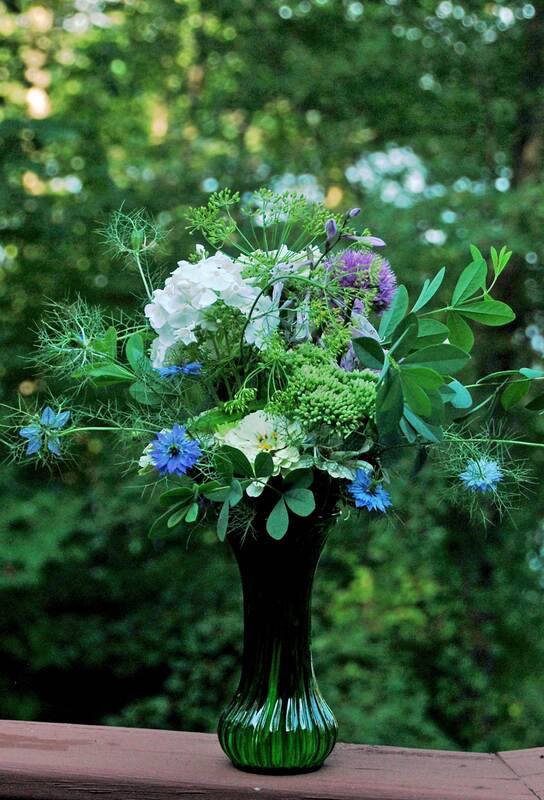
 RSS Feed
RSS Feed